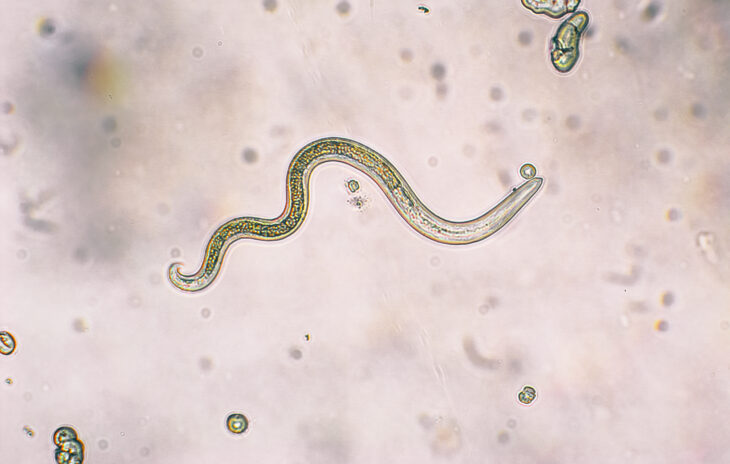Responding to the Cardiac Dangers of Current Events
When Jesus stood before Pilate to be judged, Pilate asked him, “Are you the king of the Jews?” Jesus replied, “My kingdom is not of this world. If it were, my servants would fight to prevent my arrest by the Jewish leaders.” By referring to his kingdom as a spiritual reign and not one of this world, Jesus gives us good reason to maintain a healthy perspective on and participation in current events, including sports and politics.
Recent research confirms the wisdom of this perspective. A paper published in the Proceedings of the National Academy of Sciences shows that in addition to the spiritual and psychological benefits of following this advice, our physical health actually depends upon it. A team of twelve medical researchers led by Matthew Mefford discovered a surprising connection.
Mefford’s team first cited previous studies showing that within minutes to hours after major traumatic events, the number of acute cardiovascular disease events (angina, heart attacks, and strokes) rises substantially.1 For example, on the day of the 6.7-magnitude Northridge, California, earthquake in 1994, the number of deaths due to cardiovascular disease events (CDEs) of Los Angeles County residents rose by 92% above the average daily rate for the 16 days previous and the 14 days following the quake.2 More people died as a result of increased CDEs than from the earthquake itself.
On September 11, 2001, medical diagnoses associated with cardiac ischemia (restriction of blood supply to heart tissues), even thousands of miles away from New York City, rose by 70%.3 Even something far less disastrous, such as a nationally significant sports defeat, can trigger an uptick in CDEs. On June 22, 1996, when the Dutch soccer team was eliminated from the European championship, mortality from heart attacks and strokes among Netherlands’ male adult population increased by 51%.4
The research team compared these numbers with the rate of acute CDEs among Kaiser Permanente Southern California patients around the time of the 2016 US presidential election. They found that during the two days after the election, the rate of heart attacks and strokes increased by 62% compared with the same two days of the previous week. The increase was similar across race, age, and sex.
Healthy Responses to Political Upheaval
Mefford and his colleagues made no recommendations on how to better respond to the health challenges posed by disasters and other stress-inducing events other than to conclude that more research studies are needed. However, reading their paper stirred my thinking about spiritual connections.
Given a surge in CDEs after a sporting event, no wonder we see a substantial increase in them after a national election, which has bearing on our laws, economy, national security, international relations, and so much more, including the moral-ethical-spiritual climate of the country.
From a Christian perspective, we should not be surprised by the degree to which many political contests become rancorous, disturbing, and stressful. Paul reminds us in Ephesian 6:12 that rulers, authorities, powers of darkness, and spiritual forces are engaged in a battle for human souls. In Daniel 10 we learn that God may deploy angels to oppose or support the rulers of nations.
While I do not mean to imply that all political events involve supernatural interventions by demons and angels, I believe that some do. So, we can expect that many of our political leaders, especially those with the greatest influence over a municipality, state, nation, or cluster of nations will be affected by “spiritual forces of evil.”
Given that our political leaders are targets of spiritual forces, Scripture commands us to pray for these individuals (see 1 Timothy 2:1–2). However, we can pray without grave anxiety, fear, or stress because “the army that fights for us is more powerful than the one against us” (2 Kings 6:16).
Meanwhile, our cardiovascular system can be protected from undue stress as we focus on the certainty that God is in control. Whatever happens in the political arena or anywhere else, “God works for the good of those who love him, who have been called according to his purpose” (Romans 8:28).
Endnotes
- Matthew T. Mefford et al., “Sociopolitical Stress and Acute Cardiovascular Disease Hospitalizations around the 2016 Presidential Election,” Proceedings of the National Academy of Sciences USA 117, no. 43 (October 27, 2020): 27054–58, doi:10.1073/pnas.2012096117.
- Robert A. Kloner et al., “Population-Based Analysis of the Effect of the Northridge Earthquake on Cardiac Death in Los Angeles County, California,” Journal of the American College of Cardiology 30, no. 5 (December 1997): 1174–80, PII S0735-1097(97)00281-7.
- S. Claiborne Johnston, Michael E. Sorel, and Stephen Sidney, “Effects of the September 11th Attacks on Urgent and Emergent Medical Evaluations in a Northern California Managed Care Plan,” American Journal of Medicine 113, no. 7 (November 2002): 556–62, doi:10.1016/s0002-9343(02)01321-9.
- Daniel R. Witte et al., “Cardiovascular Mortality in Dutch Men during 1996 European Football Championship: Longitudinal Population Study,” British Medical Journal 321 (December 23, 2000): 1552–54, doi:10.1136/bmj.321.1552.





